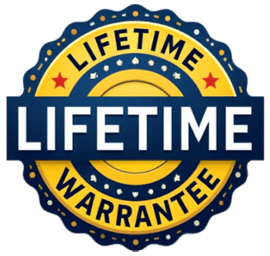

What Homeowners Need to Know About Soft Water in Southwest Florida
The pristine beaches and sunny climate of Southwest Florida attract countless residents and visitors each year. However, beneath this paradise lies a common household challenge that many homeowners face: exceptionally hard water. The region’s unique geological makeup contributes to water with high mineral content, creating various issues for residential plumbing systems, appliances, and even personal comfort. Understanding the distinction between hard and soft water, along with potential solutions, can significantly enhance your Southwest Florida living experience.
Understanding Hard Water in Southwest Florida
Southwest Florida’s water supply predominantly comes from the Floridan Aquifer, a vast underground reservoir that extends beneath the entire state. As rainwater filters through the region’s limestone bedrock, it absorbs substantial amounts of calcium and magnesium minerals. This natural process results in water that ranks among the hardest in the nation, with many Southwest Florida communities experiencing hardness levels between 180-300 parts per million (PPM).
The geological characteristics of the region directly influence water quality. Cities like Naples, Fort Myers, and Sarasota typically report water hardness readings that fall into the “very hard” to “extremely hard” categories. For comparison, water is considered moderately hard at just 60-120 PPM, while Southwest Florida’s readings frequently exceed 200 PPM. This elevated mineral concentration stems from the porous limestone landscape that characterizes the region’s karst topography.
Municipal water treatment facilities address many water quality concerns, but hardness typically remains untreated. This is because minerals like calcium and magnesium don’t pose health risks—in fact, they provide some nutritional benefits. However, these minerals can create numerous household problems that prompt many Southwest Florida homeowners to consider additional water treatment options for their residences.
Testing your home’s water hardness provides valuable insight into your specific situation. Professional water quality assessments can determine exact mineral concentrations, while DIY test kits offer a general indication of hardness levels. Understanding your water’s mineral content serves as the first step toward addressing any related issues and determining whether a water softening system would benefit your household.
How Hard Water Affects Your Home and Health
The effects of hard water extend throughout your home, creating both visible and hidden problems. Perhaps the most noticeable sign appears on fixtures and glass surfaces—white, chalky deposits that accumulate over time. These mineral deposits, commonly called limescale, can be particularly stubborn to remove and continually reappear despite regular cleaning efforts.
Inside your plumbing system, calcium and magnesium gradually build up within pipes, reducing water flow and potentially leading to clogs or increased pressure. This mineral accumulation affects water-using appliances as well. Water heaters become less efficient as scale insulates heating elements, dishwashers develop mineral deposits on internal components, and washing machines experience reduced performance and potential damage over time.
The laundry room often reveals hard water’s impact through stiff, dull-looking clothes. The minerals interfere with detergent effectiveness, preventing proper lathering and rinsing. This not only affects cleaning quality but can also shorten fabric lifespan as mineral residue breaks down fibers over repeated washings. Many households find themselves using excessive amounts of detergent to compensate, increasing household expenses.
Personal care routines also suffer from hard water’s effects. When showering, soap doesn’t lather properly, leaving a film on skin that can cause dryness and irritation. Hair washed in hard water often appears dull and feels rough due to mineral buildup on strands. Those with sensitive skin conditions like eczema may experience worsened symptoms when regularly exposed to water with high mineral content.
Water Softening: How It Works
Water softening systems address hard water problems through a process called ion exchange. These systems contain resin beads charged with sodium ions. As hard water passes through the resin bed, calcium and magnesium ions—which carry a stronger positive charge—are attracted to the resin, displacing the sodium ions. This exchange effectively removes the hardness-causing minerals from the water supply.
Modern water softeners operate through a regeneration cycle that maintains system effectiveness. When the resin beads become saturated with calcium and magnesium, the system flushes them with a salt solution that replenishes the sodium ions. This automated process typically occurs during low-usage periods, such as overnight, to minimize disruption to household water availability.
The components of a standard water softening system include a mineral tank containing the resin beads, a brine tank that holds the salt solution, and a control valve that manages water flow and regeneration cycles. Some advanced systems incorporate additional features like flow meters to trigger regeneration based on actual water usage rather than preset timers, improving efficiency and reducing salt consumption.
Installation considerations include available space, proximity to main water lines, and drainage requirements. Most systems connect to your home’s water supply at the point of entry, ensuring all water used throughout the residence receives treatment. Professional installation ensures proper setup and optimal performance, though ongoing maintenance remains relatively simple for homeowners.
Benefits of Soft Water for Southwest Florida Homes
Converting from hard to soft water delivers numerous advantages for Southwest Florida homeowners. Perhaps the most immediate benefit appears in cleaning tasks—soap and detergents lather more effectively, requiring smaller amounts to achieve desired results. This enhanced cleaning power translates to spotless dishes, brighter laundry, and cleaner surfaces throughout your home.
Plumbing systems and water-using appliances experience extended lifespans when protected from mineral buildup. Water heaters operate more efficiently without scale insulation, potentially reducing energy costs by 25-30% according to some estimates. Dishwashers and washing machines maintain peak performance longer, while showerheads and faucets remain free-flowing without frequent cleaning or replacement.
Personal care improves significantly with soft water. Many residents report softer skin and hair after switching to softened water, as natural oils remain intact without mineral interference. Soap rinses away completely rather than leaving residue, and those with sensitive skin often experience relief from irritation. These quality-of-life improvements represent meaningful daily benefits beyond the mechanical advantages.
Long-term cost savings accumulate through reduced cleaning product usage, lower energy bills, and fewer appliance repairs or replacements. While water softening systems require an initial investment, many Southwest Florida homeowners find the combined savings and lifestyle improvements justify the expense, particularly in a region where water hardness levels rank among the nation’s highest.
Choosing the Right Water Softener for Your Home
Selecting an appropriate water softening system requires consideration of several factors specific to your household. System capacity represents a primary consideration—the unit must adequately handle your family’s water consumption. Capacity typically appears in grains per gallon (GPG), with average households requiring systems rated between 30,000-40,000 grains depending on water hardness levels and usage patterns.
Various water softener types offer different advantages. Traditional salt-based systems provide comprehensive hardness removal but require regular salt replenishment. Salt-free conditioners alter mineral structures to prevent scaling without removing minerals, offering a low-maintenance alternative though with somewhat different results. Dual-tank systems ensure continuous soft water availability even during regeneration cycles, benefiting larger households with consistent water demands.
Additional features worth considering include digital controls for programming flexibility, water efficiency certifications that minimize waste during regeneration, and bypass valves that allow untreated water access for outdoor use or specific fixtures. Some systems incorporate water filtration capabilities to address additional water quality concerns beyond hardness.
Professional consultation helps navigate these options by assessing your specific water conditions and household needs. Local water treatment specialists familiar with Southwest Florida’s unique water challenges can recommend appropriately sized systems and features that address your particular situation, ensuring optimal performance and value for your investment.
Installation and Maintenance Considerations
Professional installation ensures your water softening system integrates properly with your home’s plumbing. The process typically involves connecting the unit to your main water line before it branches to individual fixtures, allowing whole-house treatment. Installation also includes setting up drainage for the regeneration process and programming initial settings based on your water hardness level and household size.
Ongoing maintenance requirements remain relatively straightforward for most systems. Regular salt replenishment represents the primary task for traditional softeners, typically needed every 4-8 weeks depending on water usage and hardness levels. Periodic cleaning of the brine tank prevents salt bridging or mushing that can interfere with proper regeneration, while annual inspection of resin beds and control valves ensures continued efficiency.
Water softener salt comes in several forms, including rock salt, solar salt, and evaporated salt pellets. While rock salt costs less, it contains more impurities that may require more frequent brine tank cleaning. Evaporated salt pellets, though more expensive, contain fewer impurities and often result in more efficient operation with less maintenance—a consideration for Southwest Florida homeowners seeking convenience.
System lifespan typically ranges from 10-15 years with proper maintenance, representing a long-term solution to hard water issues. Many manufacturers offer warranties covering major components for 5-10 years, providing additional investment protection. Establishing a relationship with a reputable local water treatment company ensures access to professional service when needed throughout your system’s operational life.
Drinking Softened Water: Facts and Considerations
Many Southwest Florida residents wonder about consuming softened water. The primary consideration involves sodium content—the ion exchange process adds small amounts of sodium to treated water. However, this increase remains minimal for most households. A typical 8-ounce glass of softened water contains approximately 12-20 milligrams of sodium, significantly less than found in many foods and well below dietary guidelines for healthy adults.
Those following strict sodium-restricted diets have several options. Installing a bypass for kitchen drinking water allows access to unsoftened water for consumption while maintaining soft water benefits throughout the rest of the home. Alternatively, under-sink reverse osmosis systems can remove sodium along with other dissolved solids from drinking water, providing an additional purification step for cooking and consumption.
The taste difference between hard and softened water varies by individual preference. Some people detect a slightly different flavor in softened water, while others notice no change. The mineral content in hard water contributes to its taste profile, which some residents prefer. Personal preference ultimately determines whether softened drinking water meets your expectations.
Health considerations beyond sodium remain minimal. The calcium and magnesium removed during softening contribute to dietary mineral intake when consumed in hard water, but most people receive adequate amounts of these nutrients through food sources. No significant health disadvantages have been associated with drinking properly softened water for the general population.
Conclusion
Southwest Florida’s beautiful coastal environment comes with the challenge of exceptionally hard water, but modern water treatment solutions offer effective remedies. Understanding the impact of hard water on your home, appliances, and personal comfort provides context for considering water softening options. With proper system selection, installation, and maintenance, Southwest Florida homeowners can enjoy the benefits of soft water while protecting their plumbing investments and enhancing daily living experiences.
Local water treatment professionals familiar with the region’s specific challenges provide valuable guidance throughout the process, from initial water testing through system selection and ongoing service. By addressing hard water issues, Southwest Florida residents can eliminate one household concern while enjoying all the benefits this beautiful region has to offer.

